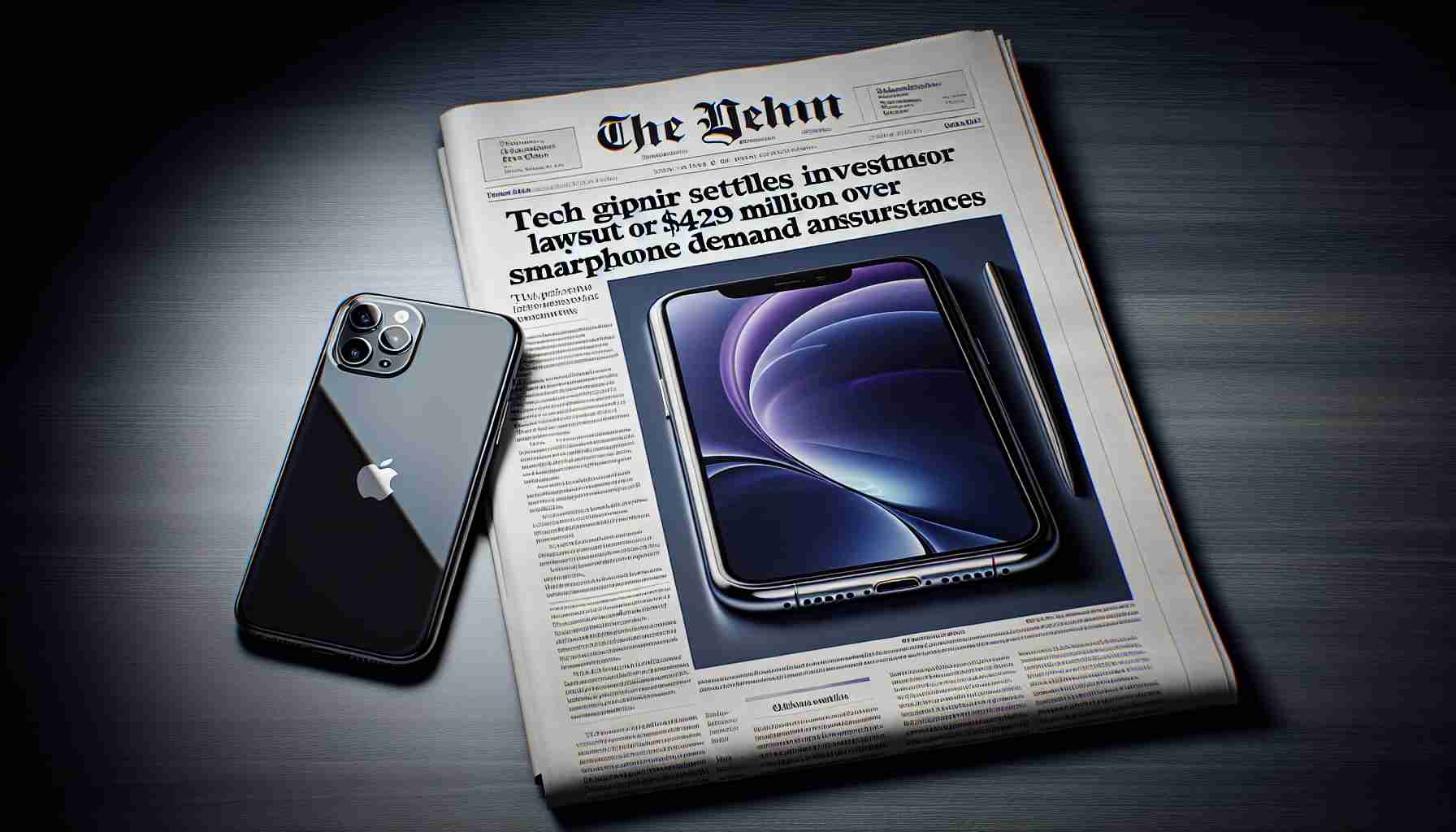Apple has reached a settlement worth $490 million to resolve a class-action lawsuit that accused CEO Tim Cook of providing misleading information to investors regarding the demand for iPhones in China. The lawsuit stemmed from Apple’s unexpected announcement on January 2, 2019, stating that the company would be slashing its quarterly revenue forecast by up to $9 billion. This decision was attributed to escalating trade tensions between the United States and China.
Just two months prior to this announcement, during an analyst call, Tim Cook had assured investors that iPhone sales were not facing significant challenges in China, contrary to other markets like Turkey, India, Brazil, and Russia. However, the subsequent disclosure of the revenue forecast cut took the market by surprise, resulting in a 10% drop in Apple shares and wiping out approximately $75 billion of the company’s market value.
While Apple denies any liability in the settlement, court records indicate that the company has agreed to the terms, pending the approval of Judge Yvonne Gonzalez Rogers, who will preside over the hearing scheduled for April 30. The settlement will cover investors who purchased Apple shares in the two-month period between Cook’s assurances and the revenue forecast announcement.
Shortly after the call with investors, Apple instructed its suppliers to decrease iPhone production. The company has not yet commented on the outcome of the lawsuit. However, Shawn Williams, a lawyer representing shareholders, described the settlement as an “outstanding result.”
It is worth noting that the settlement amount, which represents less than two days’ worth of Apple’s annual profit, $97 billion, has drawn attention to the disparity between the financial impact on investors and the company’s overall earnings.
This settlement marks a significant development in the legal battle surrounding Apple’s investor disclosures, highlighting the importance for companies to provide accurate and transparent information to shareholders.
The settlement between Apple and the investors is just one development in the larger context of the technology industry and the challenges faced by companies in global markets. The smartphone industry, in particular, has witnessed intense competition and changing market dynamics in recent years.
According to market forecasts, the global smartphone market is expected to witness a period of slow growth in the coming years. Factors such as market saturation in developed economies, longer replacement cycles, and increasing competition from Chinese smartphone manufacturers have contributed to this trend. However, emerging markets like India and Southeast Asia are still expected to provide growth opportunities.
In China specifically, a slowing economy and trade tensions with the United States have had a significant impact on the demand for iPhones. The tariff war between the two countries has resulted in increased prices for imported goods, including smartphones. Additionally, local Chinese brands have gained popularity, offering competitive alternatives to Apple’s products.
Issues related to the smartphone industry also extend to concerns over privacy and security. With the increasing amount of personal data stored on smartphones, companies like Apple are constantly navigating the delicate balance between providing innovative features and ensuring user privacy. This has led to debates over encryption, government access to user data, and the role of tech companies in protecting user information.
For additional information on the smartphone industry and related topics, you may refer to reputable sources like Counterpoint Research, IDC, and Gartner. These organizations provide valuable insights into market trends, forecasts, and challenges faced by companies in the industry.
The source of the article is from the blog mendozaextremo.com.ar
